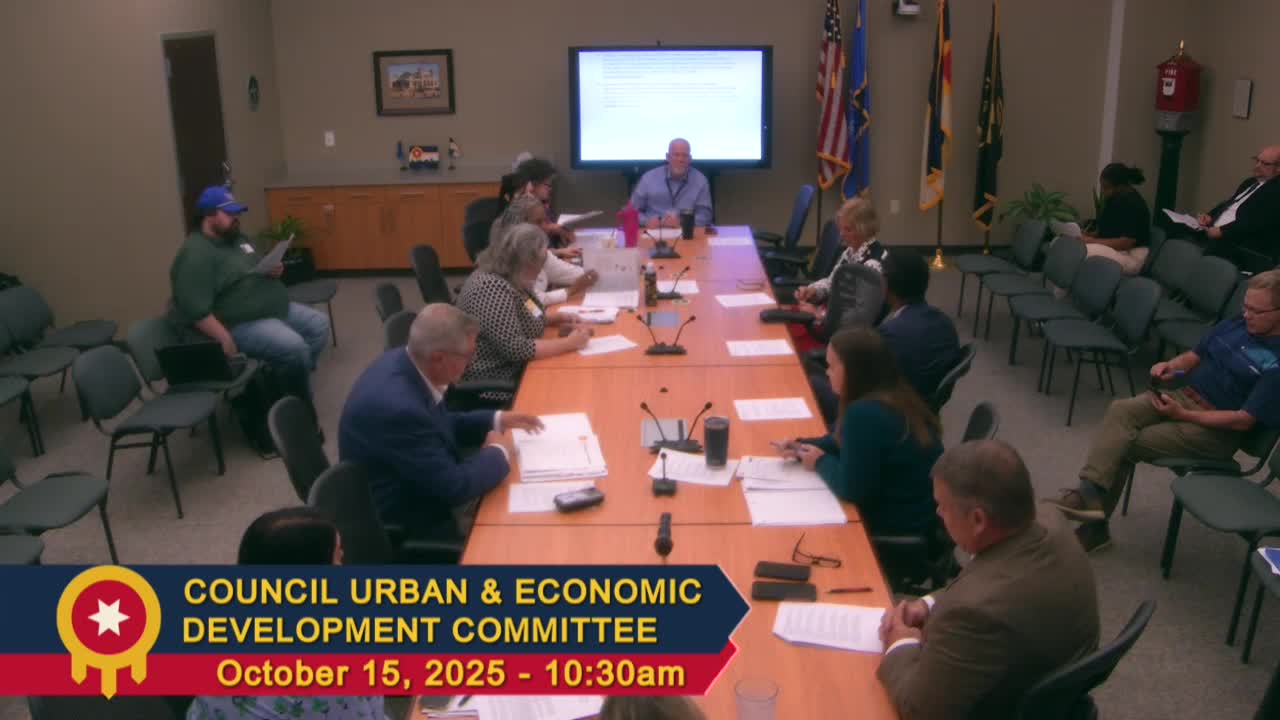City creates Office of Health and Well‑Being, council debates sustainability and staffing
Get AI-powered insights, summaries, and transcripts
Subscribe
Summary
The City of Tulsa established a new Office of Health and Well‑Being and appropriated grant funds to begin operations, while council members pressed officials for concrete performance targets and assurances that grant positions will not become an ongoing general‑fund obligation.
The City of Tulsa formally established an Office of Health and Well‑Being and approved supplemental grant funding on Oct. 15 as officials described how the new office will coordinate mental‑health grants, convene health partners and pursue outside funding rather than rely on general‑fund dollars.
Dr. Jabron Pasha, senior advisor for community health in the mayor’s office, told council members the office will oversee the city’s $4 million federal Tulsa Children’s Mental Health Grant and lead wider coordination with hospitals, behavioral‑health providers and community groups. “Most pressing is the city’s mental health work is now under this office,” Pasha said.
Pasha told the council the office will be funded initially by outside grants and philanthropic gifts, including $216,000 in new grant appropriations from the George Kaiser Family Foundation and Community Care Oklahoma that were presented at the meeting. He said the office will hire a director of programs to manage grant compliance and a portion of his own position will be reclassified and covered by the new funding; a portion of his salary will remain in the mayor’s office.
Council members pressed Pasha and budget staff on whether the office will require long‑term city funding. “There’s an expectation that there’s going to be a lot of cuts to funding and a lot more uninsured folks,” Pasha said. He said the office’s funding model relies on raising outside dollars and on health‑sector partners contributing because the work should reduce costs for providers.
Councilors repeatedly asked for concrete, near‑term deliverables and key performance indicators. “If we don’t have one yet, immediately get a mission, vision and strategy outline,” Councilor Ray said, adding that the city is already stretched with existing grant‑funded positions that later become local responsibilities. Other councilors emphasized the need to flag any positions that might shift onto the general fund and asked that the office return with a timeline and metrics for measuring outcomes.
Pasha listed a set of activities the office will pursue: coordinating the mayor’s health coalition, integrating health outcomes into the neighborhood conditions index, supervising grant writing and administration, and convening partners to prepare for reduced state and federal funding. He cited a pending $21 million TSET (Tobacco Settlement Endowment Trust) grant application that, if awarded, could fund trails, clinic space and other community health projects. “The director will also be responsible for writing grants to continue to fund this office’s work,” Pasha said.
The council debate focused on balancing the office’s promise against fiscal risk. Several council members urged caution and sought written guardrails describing how grant dollars would (or would not) convert to long‑term obligations for the city. Pasha and staff said the office is designed to be largely grant‑funded and to attract contributions from insurers and health systems.
Council members asked the office to return with a short mission statement, proposed KPIs, a multi‑year funding plan and a schedule for brief quarterly updates so the council can judge progress and funding needs.
The appropriation of the newly announced grant funds was presented to the council during the meeting. Staff said specific budget language and the ordinance number for the transfer were included in the agenda backup.
